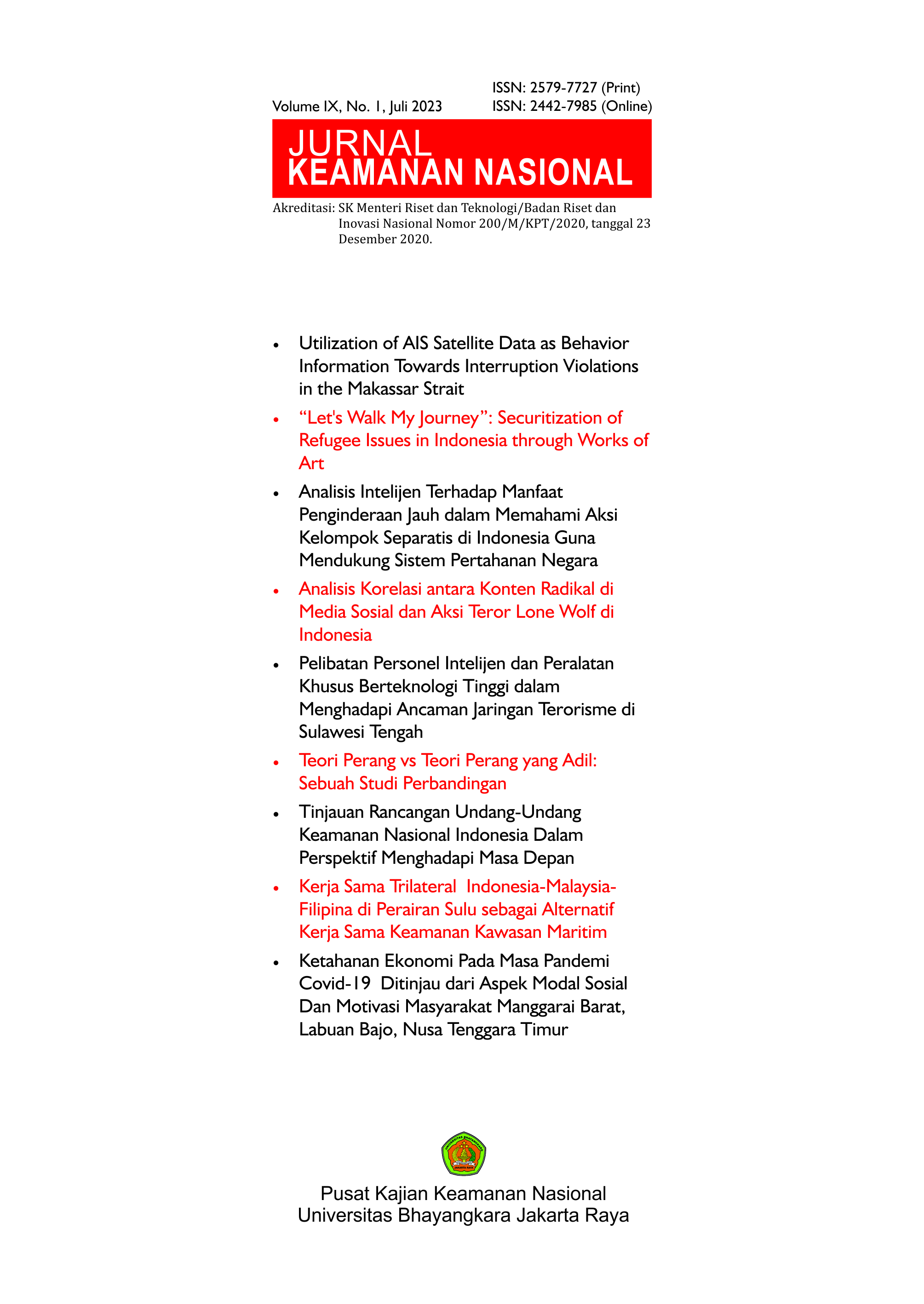Tinjauan Rancangan Undang-Undang Keamanan Nasional Indonesia Dalam Perspektif Menghadapi Masa Depan
Keywords:
National Security, escalation of threats, rules of engagementAbstract
A large country like Indonesia should have a law on national security, as a basis for law enforcement and national security stability. Views about concerns about military domination or civilian fear of the abuse of authority by the articles of the National Security Law by the Police, it is time to eliminate them with the formulation of firm and precise articles in the National Security Bill and authorization of prosecution. It is time to emphasize the use of the words ‘leading sector’ with the term involvement and taking over authority in dealing with escalating threats that endanger National Security (Kamnas) and state sovereignty. Every potential threat, both from outside and from within the country, should be seen as a serious threat and handled together for the sake of the integrity and stability of the country’s security. It is time to determine the rules of engagement in each escalation of threats, and the authority of the agencies involved, as well as the authorization of officials who have the right to determine the escalation and involvement of agencies.
Downloads

Downloads
Published
Issue
Section
License
Please read and understand the copyright terms for submissions to this journal.
Copyright Notice
The Jurnal Keamanan Nasional is under the Creative Commons Attribution 4.0 International (CC-BY 4.0) License, according to which:
1) Authors retain copyright and grant the journal the right to first publication, with the work simultaneously licensed under the Creative Commons Attribution (CC-BY 4.0) that allows the sharing of articles published with the acknowledgement of authorship and the initial publication in this journal.
2) The authors are authorized to make additional contracts separately for distribution of the version of the work published in this journal (for example, publication in an institutional repository or as a chapter of the book), as long as there is recognition of authorship and initial publication in this journal.
3) Authors are authorized and encouraged to publish and distribute their work online (for example, in institutional repositories or on their personal pages) at any time before or during the editorial process, as it increases the impact and reference of the published work.












